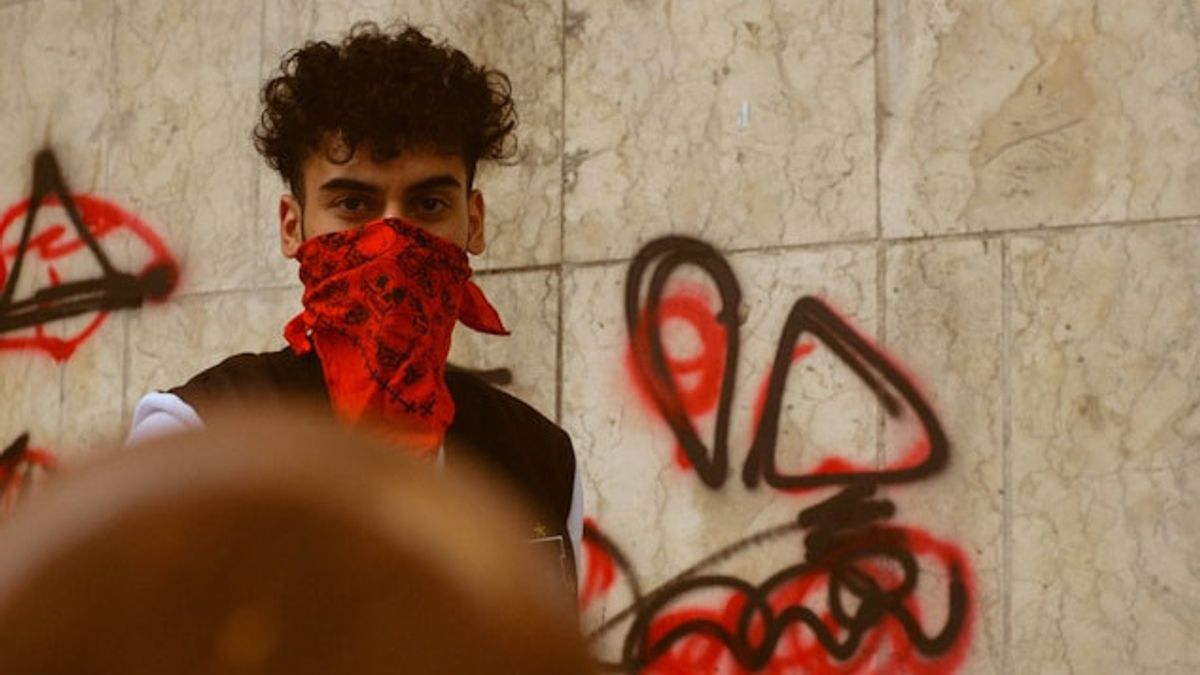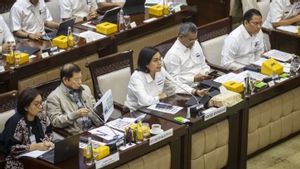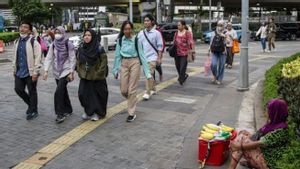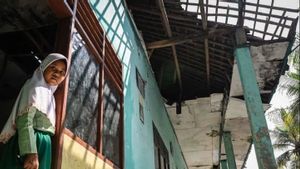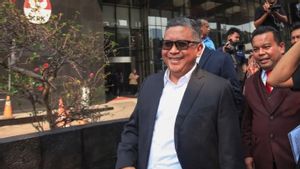JAKARTA The rape and murder of a junior high school student in Palembang is in the public's attention. The public is furious that three perpetrators were returned to their parents because they were underage. Should the Child Protection Act be revised?
AA (13), a junior high school student in Palembang, was found dead at the Talang Kericil TPU, Palembang, Sunday (1/9/2024). From the results of the investigation, it was found that there were scars from a blunt object hit on the neck.
The victim died as a result of being raped and murdered by four teenagers with the initials IS (16), MZ (13), MS (12), and AS (12). After doing this barbaric thing, the four victims even proudly told their colleagues what they had done.
"This story is the beginning for us to get information from witnesses so that we can reveal the roles of the perpetrators," said Palembang Police Chief Kombes Harryo Sugihhartono, quoted by Kompas.
What is now the public's concern is that, apart from IS (16) as the main actor, three other perpetrators were sent home for minor reasons. The three perpetrators were placed in the Darmapala Legal Rehabilitation Social Institution (PSRABH), Ogan Ilir (OI) Regency, South Sumatra, before being sent home to their respective parents. According to Kombes Harryo, the three suspects who were still in junior high school were not detained in accordance with Article 32 of the Child Protection Act.
However, whether the suspect is detained or not is considered not to fulfill a sense of justice, regardless of the fact that this is in accordance with the Law on the Criminal Justice System. The question that now haunts the public is, does it allow the law to be revised so that similar incidents do not repeat itself?
Quoting JFB & Partners of Indonesian Legal Consultant, basically children can be held accountable for their crimes if they are more than 12 years old and not 18 years old. This is in accordance with Article 1 paragraph (3) of the Child Justice System Law (SPPA).
Then Article 32 paragraph (2) of the SPPA Law states that the detention of children can only be carried out on condition that the child is 14 (fourteen) years old, or is suspected of committing a criminal act with the threat of imprisonment of seven years or more.
Thus, according to criminal law observer Farizal Pranata Bahri, the decision not to detain the three perpetrators is in accordance with the SPPA Law, because the three are under the age of 14. However, if the child commits a criminal act with threats above seven years then he can be detained while still prioritizing the rights of children regulated in the law.
"Children who commit crimes can be punished by making arrests first if they are 14 years old, and for children who commit crimes, the detention process and the type of punishment are regulated, different from the provisions of the Criminal Procedure Code in general," Farizal told VOI.
"For this application, the Juvenile Criminal Justice System Law is used," he added.
The fact that the other three actors were not detained for underage reasons became a dilemma and sparked public disappointment because it was as if what needed to be protected by human rights or human rights was only from the side of the perpetrators. How to see the perspective of the victim's side, especially since the crimes committed by the four perpetrators are quite sadistic, not only raping but also killing.
Seeing the frequent occurrence of similar incidents, when the perpetrators of crimes are not detained on the pretext that they are minors, the big question mark is in the minds of the public. Can the barrier to the age of children who commit crimes be reviewed.
"The criminal law update in the Child Protection Law and SPPA should be carried out immediately. There have been many journals and writings regarding this," said Farizal.
The law in Indonesia has been adapting to the times for too long. In other countries, it is necessary to divide the age category of children in criminal liability so that children are caught in punishment according to the age and psychology of children who commit criminal acts," Farizal added.
The same thing was also expressed by a criminal law expert from Tarumanegara University, Hery Firmansyah. He said that what AA experienced in Palembang should 'disrupt' our belief that the Child Protection Law needs to be reviewed regarding its age limit.
"Now the perpetrators of the crime are getting younger, but their crimes are getting more extraordinary, more sadistic, more dangerous. There must be a concern back, don't be comfortable with the comfort zone just because the Child Protection Law says so," said Hery.
"But it is necessary to see deviant behavior, which endangers the community, needs to be considered. So it does need to cover both sides, not only from the side of the perpetrator when he was a child, but also on the other hand the victim also needed to be considered," he added.
Hery said that the Child Protection Law needs special attention, considering that similar incidents are increasingly happening. "Does this kind of thing need to be silent on behalf of the law alone?" said Hery.
The lack of punishment given to minors is considered to be one of the absence of a deterrent effect on the perpetrators and potential perpetrators. Therefore, it is not surprising that incidents like this keep repeating themselves.
SEE ALSO:
Farizal Pranata Bahri said, with a comparative study that can be done in other countries, Indonesia can give punishment to children under the age of 14 if they commit a crime of two things, namely the main sentence and additional crime.
The main criminal, according to Farizal, can still be detained and fostered in a child's prison but with different prison conditions.
"It's not like a child prison that currently punishes children over 14 years old, but there is a special child prison that is under 14 years old, which prioritizes protection of changes in children's traits and behavior through certain methods," he said.
Meanwhile, for additional crimes, it is necessary to be punished in the form of psychological rehabilitation in child institutions within a certain period of time, as well as to carry out social work supervised by the government.
"That way the law with justice certainty and benefits can be felt both to the families of the victims and the perpetrators," he concluded.
The English, Chinese, Japanese, Arabic, and French versions are automatically generated by the AI. So there may still be inaccuracies in translating, please always see Indonesian as our main language. (system supported by DigitalSiber.id)
